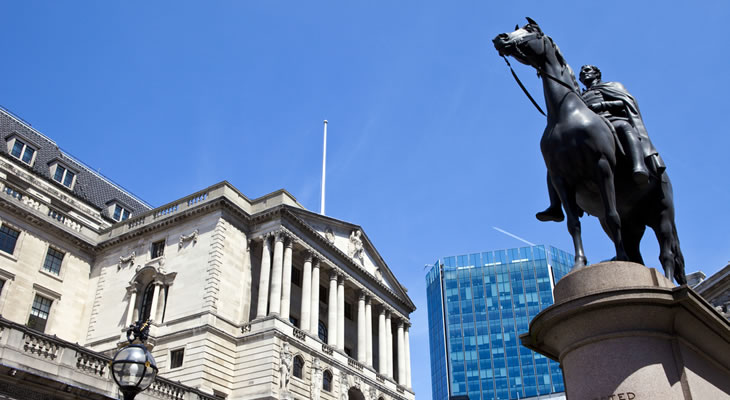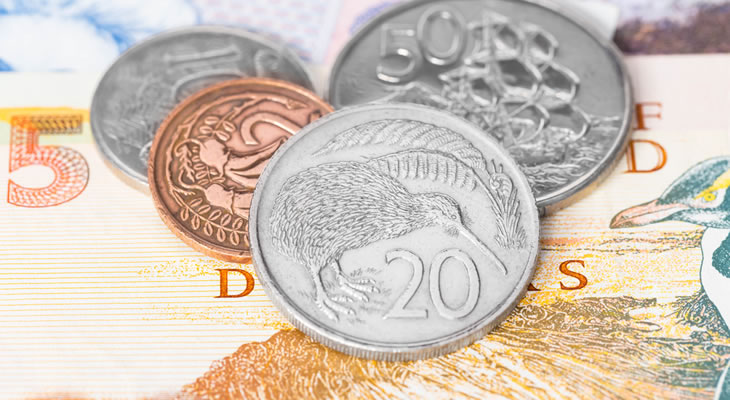- British Public Votes ‘Leave’ – Brexit underway, causing Pound New Zealand Dollar exchange rate to free fall
- Prime Minister David Cameron to Step Down – Expects a successor by October
- New Zealand Dollar Struggles as Risk-Sentiment Vanishes – Up against Pound, however
- Forecast: Pound to Remain Weak Long-Term – New Zealand Dollar could recover
The Pound New Zealand Dollar exchange rate plummeted overnight before Friday morning’s confirmation that Britain had officially voted to ‘Brexit’ from the European Union. A related drop in the appeal of risky investments also weighed on the ‘Kiwi’, however.
At the time of writing, GBP/NZD trended in the region of 1.9570. The pair fluctuated heavily throughout the night as investors left and rebought the Pound at its cheaper levels, with many investors also leaving the ‘Kiwi’ for safer currencies. At one point, GBP/NZD had lost around 12 cents, near a two-and-a-half-year low.
Sterling (GBP) Free Falls on Friday as a ‘Brexit’ is Confirmed
The Pound plummeted across the board on Thursday night and throughout Friday as a market expectation of a ‘Remain’ result to the EU Referendum was thoroughly undermined.
With a result of 51.89% to 48.11% in favour of ‘Leave’ confirmed early on Friday morning, markets around the world were thoroughly shocked when the fear of a possible ‘Brexit’ became a reality.
The London stock market also dropped by over 8%, and the FTSE 100 index fell by over 500 points as market reactions snapped gears suddenly in attempt to adjust their positions.
The Pound experienced its largest one-day-drop across the board in over 30 years.
Uncertainty is rife throughout the Kingdom, with UK Prime Minister David Cameron confirming that as some expected, he would indeed be stepping down as Prime Minister. He expects to be succeeded by a new Conservative leader sometime before October 2016.
‘I will do everything I can as Prime Minister to steady the ship over the coming weeks and months but I do not think it would be right for me to try to be the captain that steers our country to its next destination.
This is not a decision I’ve taken lightly but I do believe it’s in the national interest to have a period of stability and then the new leadership required.
There is no need for a precise timetable today but in my view we should aim to have a new prime minister in place by the start of the Conservative Party conference in October.’
This uncertainty flooded across the European Union, with other nations now calling for Referendums of their own, destabilising other European currencies like the Euro.
Scottish National Party (SNP) Leader Nicola Sturgeon has also promised to consider a second Scottish Referendum. The country of Scotland voted overwhelmingly to ‘Remain’, but if it remains part of the UK it would have to leave the EU alongside Britain.
As a result, there is widespread speculation that a new Scottish Referendum to split from the UK and remain a member of the EU before the two-year process for UK to leave the bloc begins. As Scotland’s national currency is currently the Pound, this news has called into question the Pound’s future in Scotland and added to instability.
New Zealand Dollar (NZD) Dragged Down by Sterling-Influenced Risk-Off Movement
The New Zealand Dollar was dragged lower against many of its rivals as the sudden confirmation of a ‘Brexit’ caused risk-sentiment to be decidedly off across the globe.
However, it gained against the Pound as unsurprisingly, Sterling remained the least appealing in the foreign exchange market.
‘Kiwi’ sentiment was also damaged by the widespread assumption that central banks across the globe would take action soon in order to help stabilise economies. Scoop reports;
The local dollar surged as high as 52.88 British pence, the highest in almost three years, and was recently at 52.21 pence, from 48.55 pence yesterday. …
Kelleher said there’s a high probability of intervention in currency markets by central banks, possibly acting in concert. “I don’t think the Bank of England has been in yet.”
The vote also “puts any chance of a Fed rate hike on the back foot and absolutely puts an August cut by the RBNZ on the cards,” he said.
With news that the Reserve Bank of New Zealand (RBNZ) were likely to introduce new easing measures in the coming months, the New Zealand Dollar struggled to maintain its best levels the fluctuating Pound.
Pound New Zealand Dollar Exchange Rate (GBP/NZD) Forecast to Continue Falling
The Pound is unlikely to recover to Thursday’s levels for a long time, but strength could return to the New Zealand Dollar as soon as the next shift towards risk-sentiment occurs.
The ‘Kiwi’ is likely to experience some kind of ongoing pressure with markets expecting a rate cut from the central bank in the coming months, but sentiment towards the Pound will make any kind of risk-related gain more difficult.
Investors will likely rebuy the Pound on its cheapest levels however.
Heads at the European Union have made calls for Britain to incite Article 50 and begin the process of leaving the bloc as soon as possible. The process will take around two years to complete, and the Pound may experience pressure throughout this period or longer – especially if Scotland decides to leave the UK, and the Pound.
At the time of writing, the Pound New Zealand Dollar exchange rate (GBP/NZD) trended in the region of 1.9300, while the New Zealand Dollar Pound exchange rate (NZD/GBP) traded at around 0.5175.



Comments are closed.